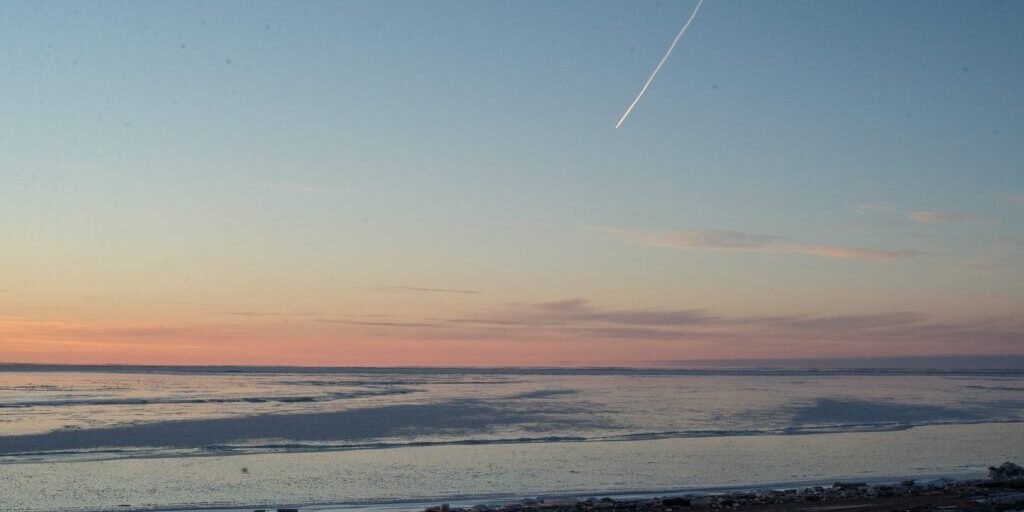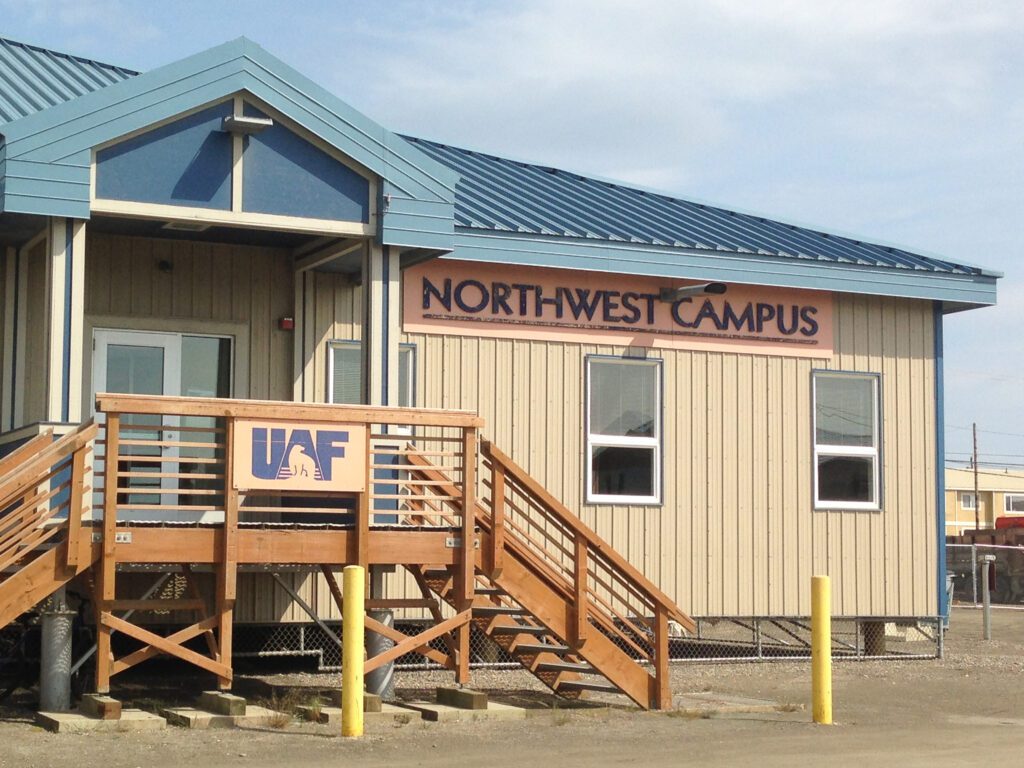In a crowded Kotzebue conference room, 31 presentations about state shoreline problems gathered scientists, tribal leaders, and government representatives alike last week. The coastal revitalization conference, which happened December 8th, examined the effects of coastal change caused by rising temperatures.
Aaron Poe, the event coordinator with the Aleutian and Bering Sea Islands Landscape Conservation Cooperative, hopes the two days will bring about possible solutions for coastal challenges.“Maybe there is something that people in Kivalina are doing that folks in the Aleutians could be doing, too. And is there a way to think about, ‘how does Shaktoolik then play in that game, too?’ And so, you have this better integrated network of folks that are working on some of the same questions.”
And there were a lot of notes to swap. To start, everyone in the room was given a thick folder filled with each other’s research. When a presenter was unable to answer a question during their presentation, an attendee whose research could better answer the question was likely sitting right next to them. Poe says they “chose the room by design” – meaning that a majority of workshop participants listening to lectures also gave presentations. “And that’s specifically because we’re trying to get folks from state agencies, folks from federal agencies, folks from tribes, folks from communities — so, community planners, borough planners — we’re trying to get these folks together in one room so they can kind of compare notes in a way. What is each of us doing when it comes to climate change? What are we concerned about? What are the information needs we all have in common?”
The result of the workshop is a coastal “toolbox” that discusses the effects and changes taking place along the shoreline. “The third section [of the toolbox] is: what are folks doing about those changes?” says Poe. “The thought is that if we bring these people together and share their own experiences, share their own adaptation strategies to these changes, that hopefully, collectively, both communities and agency managers can learn how to coordinate their actions better.”
When attendees weren’t listening to presentations, they were working together in small groups to talk about state wide problems. Groups brainstormed solutions to involving local communities, threats to infrastructure, and emergency preparedness.







